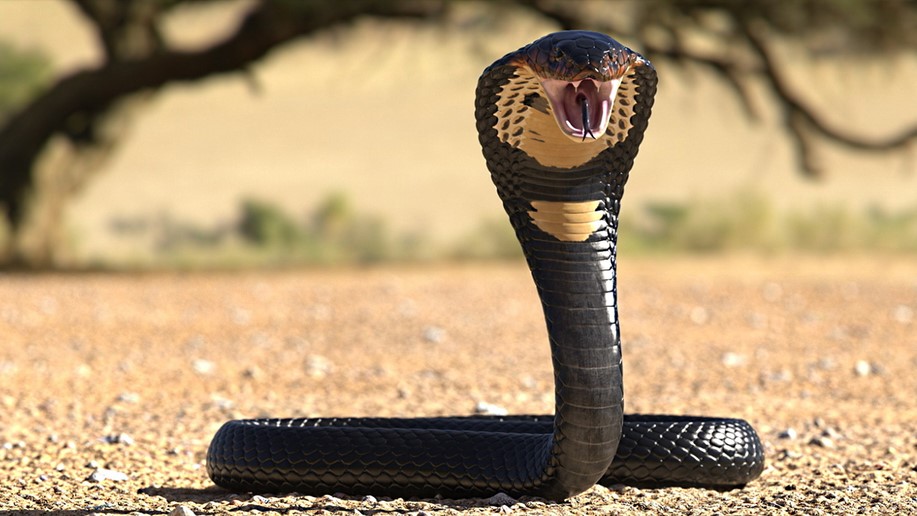Cobra bites boy, boy bites it back (the boy was fine, the snake wasn’t)
An 8-year-old boy recently killed a venomous cobra in India after recieving a venom-free "dry bite" from the snake and then biting back in retaliation.
Get the world’s most fascinating discoveries delivered straight to your inbox.
You are now subscribed
Your newsletter sign-up was successful
Want to add more newsletters?

Delivered Daily
Daily Newsletter
Sign up for the latest discoveries, groundbreaking research and fascinating breakthroughs that impact you and the wider world direct to your inbox.

Once a week
Life's Little Mysteries
Feed your curiosity with an exclusive mystery every week, solved with science and delivered direct to your inbox before it's seen anywhere else.

Once a week
How It Works
Sign up to our free science & technology newsletter for your weekly fix of fascinating articles, quick quizzes, amazing images, and more

Delivered daily
Space.com Newsletter
Breaking space news, the latest updates on rocket launches, skywatching events and more!

Once a month
Watch This Space
Sign up to our monthly entertainment newsletter to keep up with all our coverage of the latest sci-fi and space movies, tv shows, games and books.

Once a week
Night Sky This Week
Discover this week's must-see night sky events, moon phases, and stunning astrophotos. Sign up for our skywatching newsletter and explore the universe with us!
Join the club
Get full access to premium articles, exclusive features and a growing list of member rewards.
A venomous snake has died after being bitten by a small boy. No, you didn't read that wrong.
In a bizarre reversal of nature, an 8-year-old boy in India killed a cobra after biting it in retaliation. The child bit back at the dangerous animal after receiving a rare venom-free "dry bite" from the serpent, according to reports.
The boy, identified in reports as Deepak, was playing outside near his house in Pandarpadh, a village in the Jashpur district of Chhattisgarh state, when he encountered an unknown species of venomous cobra ("cobra" can refer to any snake in the Elapidae family, most of which have hoods). After coiling its body around Deepak's hand, the cobra bit Deepak, which left the young boy "in great pain," The New Indian Express reported.
"As the reptile didn’t budge when I tried to shake it off, I bit it hard twice," Deepak told local media. "It all happened in a flash."
Deepak's family rushed him to the nearby hospital where he was treated with anti-venom, but doctors say the bite likely did not contain any venom, even though the snake was probably venomous.
Related: Which came first: Snake fangs or venom?
Every year, around 5.4 million snakebites — from venomous and nonvenomous species — occur worldwide, according to a 2020 review published in the journal Toxins. Approximately 2.7 million of these bites inject venom into the victim, which causes around 138,000 deaths.
Get the world’s most fascinating discoveries delivered straight to your inbox.
It is hard to tell exactly how many snakebites from venomous species are dry bites, because victims can often misidentify which type of snake bit them; and because dry bites can still cause inflammation, which can be misdiagnosed as an envenoming, according to the study.
Experts believe that venomous snakes choose to use dry bites as a defensive mechanism to warn off larger animals that they have no intention of killing; this was probably the case when the cobra bit Deepak. Venom is energetically expensive to produce, so snakes will often choose not to use it unless they have to, according to the study.
India is home to around 100 species of venomous or mildly venomous snakes, according to the Indian wildlife organization Wildlife SOS. It also has the highest number of snakebite deaths in the world, with venomous bites killing an estimated 46,000 people every year, according to the study.
Fortunately for Deepak, his encounter with the cobra had a happy ending — for him, if not for the snake.

Harry is a U.K.-based senior staff writer at Live Science. He studied marine biology at the University of Exeter before training to become a journalist. He covers a wide range of topics including space exploration, planetary science, space weather, climate change, animal behavior and paleontology. His recent work on the solar maximum won "best space submission" at the 2024 Aerospace Media Awards and was shortlisted in the "top scoop" category at the NCTJ Awards for Excellence in 2023. He also writes Live Science's weekly Earth from space series.
 Live Science Plus
Live Science Plus











